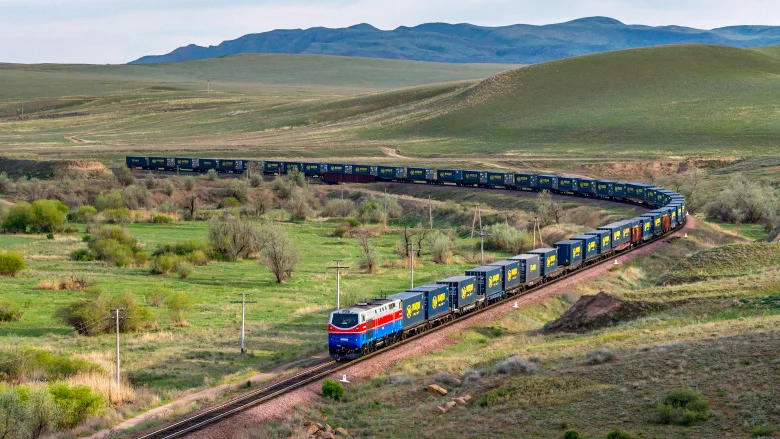BAKU, Azerbaijan, October 30. Growing investments in transport and energy infrastructure are vital to enhancing connectivity and regional integration across Central Asia, said Jihad Azour, Director of the Middle East and Central Asia Department at the International Monetary Fund (IMF), during an online briefing, Trend reports.
"Over the last few years, we saw increased interest in investing in infrastructure to support connectivity," Azour noted. "Those investments, both in terms of railway, roads, [and] electricity, are important steps in order to increase connectivity on one hand and also regional integration on the other hand."
He emphasized that such projects are long-term by nature and should be supported by complementary policy measures to maximize their impact. "In order for countries to get the full benefit of those infrastructures, it's very important to accompany those reforms by initiatives that would help increase the return on those infrastructure," Azour said.
According to him, improving the business environment and reducing trade and investment barriers are among the key steps needed to unlock the full potential of these infrastructure projects. "This could be done by improving business environment, reducing business and trade barriers, and allow both logistics services and other services to grow," he explained. "This will help increase the return on those investments in infrastructure."
Azour also highlighted the importance of managing financial risks associated with such large-scale infrastructure projects. "On the balance sheet side, it's very important to account for those long-term investments as well as identify and mitigate the risks as part of the liability management strategy of the state," he said.







